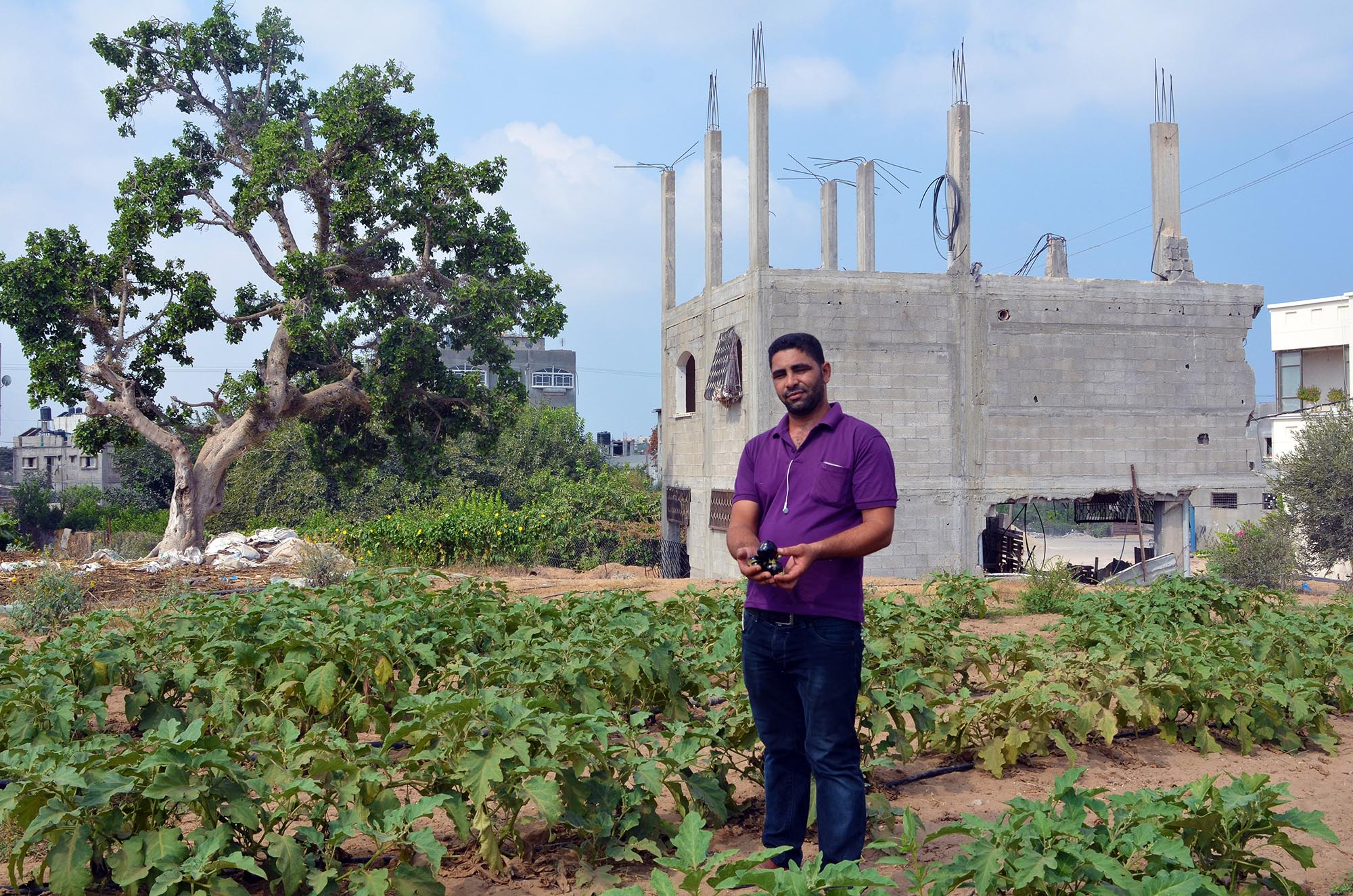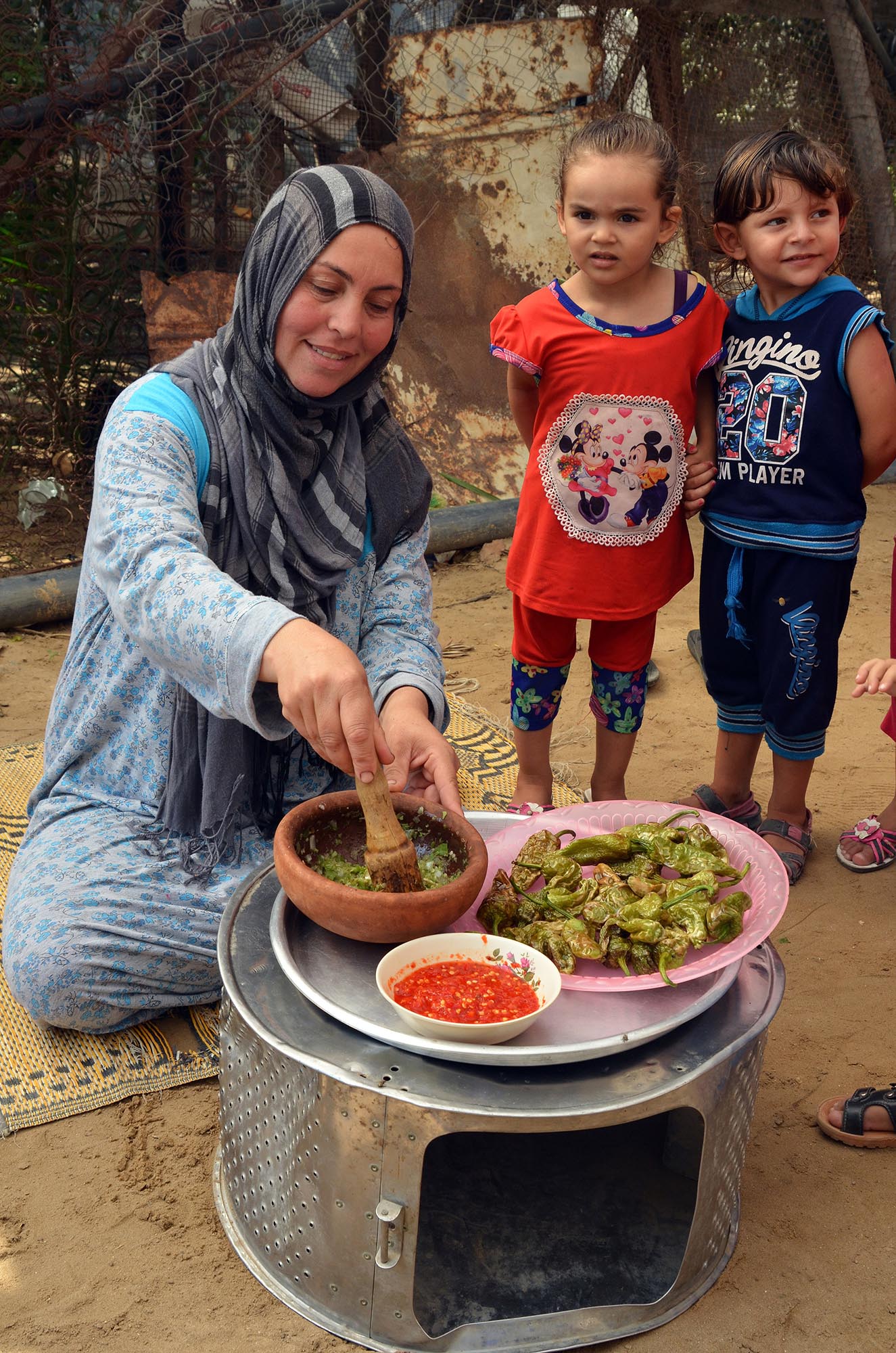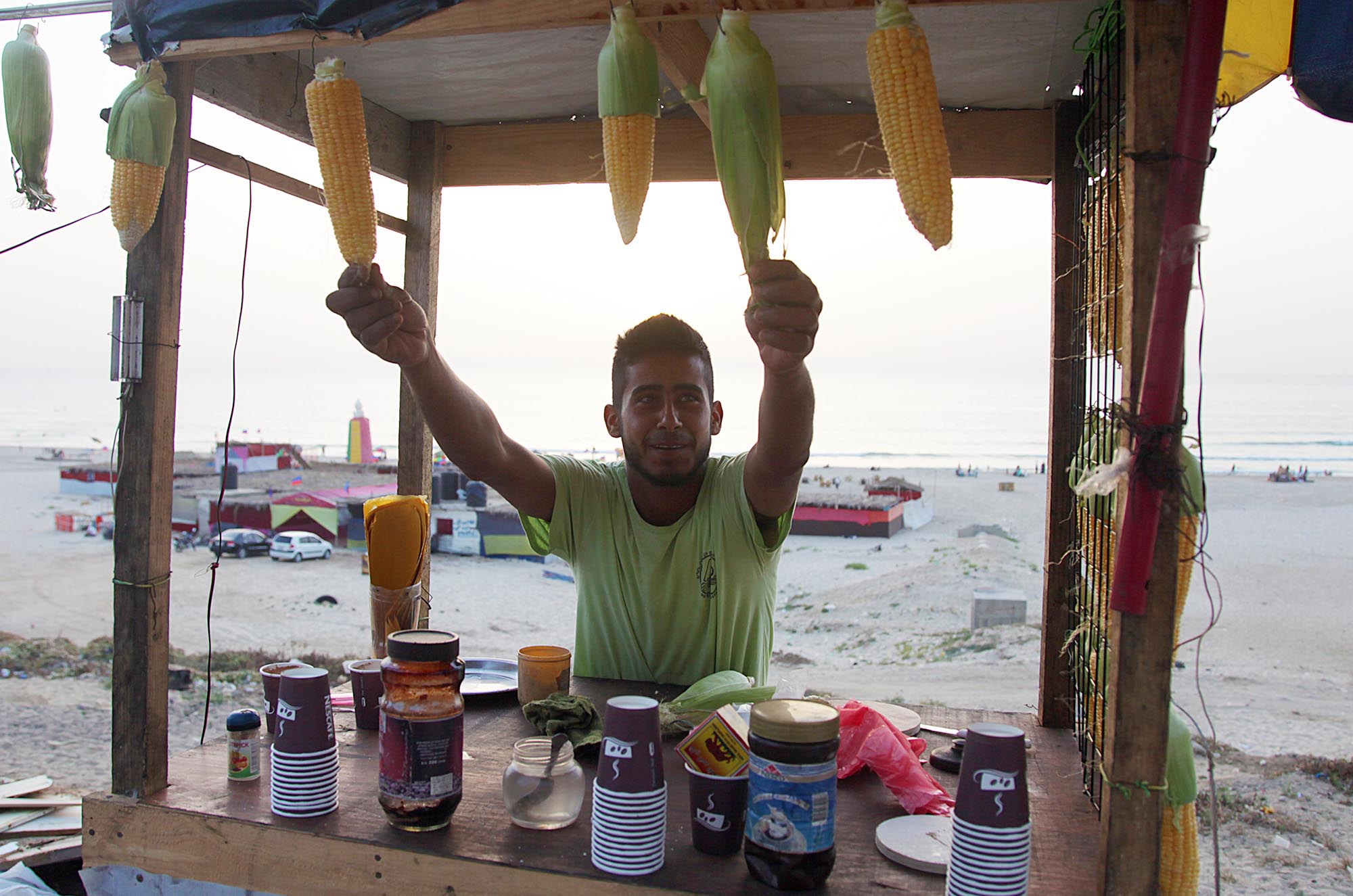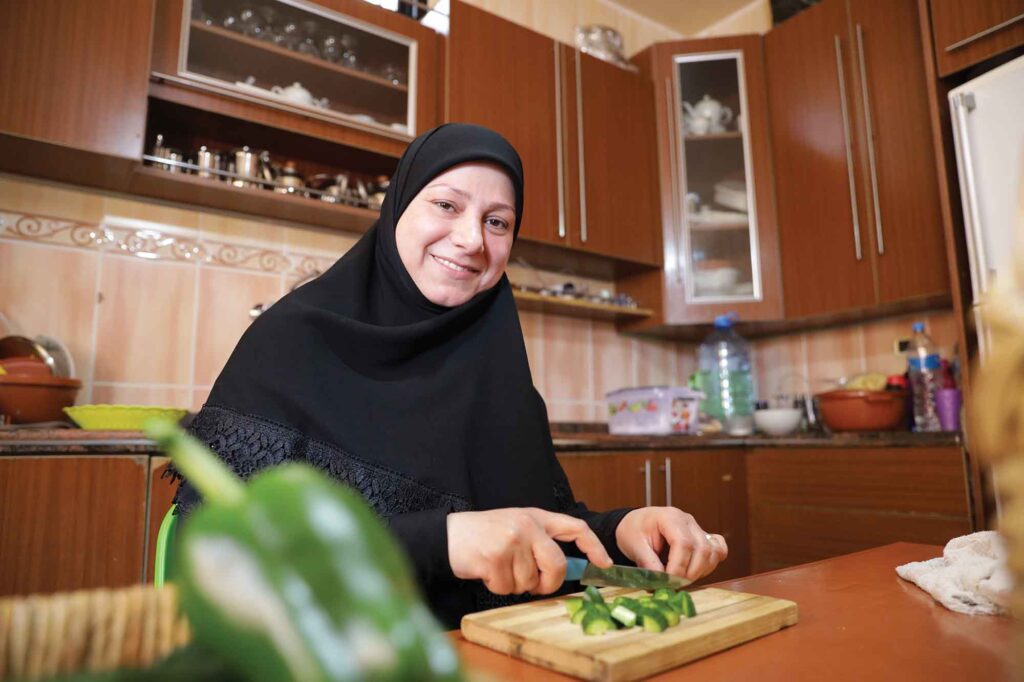Nov, 2017
On a sunny day in Gaza, Maarouf Ghaben wears headphones as he picks ripe produce on his farm in Beit Lahia.
Listening to the news is a matter of daily routine in Gaza. “We’re glued to news programs,” he explains. “We’re always listening for updates on the situation. It can impact our crops.”
Indeed, the 2014 war impacted Maarouf’s crops directly. His property, including his house, was hit with missiles and his farm was destroyed. “I thought everything was gone and there was no chance to start over,” he said.
Before Maarouf could replant his land, it needed rehabilitation. So he placed reflective sheets over his irrigation pipes and left them for 90 days so that the direct sunlight would disinfect the war-battered soil. It’s a practice he learned in Anera’s knowledge sharing program for farmers in Gaza.


One of Maarouf’s main challenges is the erratic electricity schedule in Gaza. The territory only receives a few hours of electricity per day, and it comes on at random and often inconvenient hours, like the middle of the night. And when the power is out for 18-20 hours each day, that means water cannot reach his crops. He needs electricity to pump water through the irrigation pipes. To combat this problem, Anera has helped farmers by building artificial ponds that collect water when the power is on and store it throughout the day. This way, farmers can irrigate their crops later on in the day when there is no power.


The current economic situation is getting worse... we're not making much money, but at least we are faring much better than so many others who have nothing to get by.
With help from Anera in rehabilitating and irrigating his land, Maarouf is growing produce again and earning extra cash to cover his family’s basic needs. However, the overall economy remains fragile in Gaza. “The current economic situation is getting worse,” he explains. “Demand is low, so we’re not making that much money, but at least we are faring much better than so many others who have nothing to get by.”
Fried, Baked and Pickled Peppers and Eggplants on the Farm


Maarouf’s family grows different types of eggplants that can be fried, baked and pickled to make a variety of tasty dishes. “My best moments are when we’re all sitting together and sharing meals right on the farm.”
Khitam Ghaben’s experience resembles the stories of many other farmers who lost their crops—if not because of wars, then because of the floods. For three years, she and her husband rented strawberry fields near their home. The land is located in a valley, so all of their crops were wiped out during a wintertime flood. “It was a tragic incident,” she explains. “We lost all our income and we weren’t able to purchase new supplies.”


We lost all our income and weren't able to purchase new supplies.
Anera partnered with IR-USA to help farmers like Khitam. Soon she decided to plant the plot of land again. But this time, instead of strawberries, she planted eggplants. “Continuing to farm has revived our hopes. This is the only thing we’ve known. It’s the heritage of our grandfathers.”
From Cornfields to the Gaza Beach
For the thousands of people who are unemployed in Gaza, summertime brings the hope of finding seasonal jobs as vendors on the beach. And because of the economic recession and the electricity crisis, farmers are partnering up with beach vendors to sell the traditional treat of corn on the cob. Summer is the peak season because many Palestinians head to the beach to escape the heat indoors.
Nael and his son made a deal with one of the beach vendors right in their own cornfield. “The beach is full of people during summer, especially at night, but during wintertime it’s better to sell vegetables in the local market,” he explains.


Night brings added challenges of vision, though, because without power the vendors and beachgoers cannot see in the dark. “The vendors have to carry batteries or LED lights, but that costs them money as well.” As Nael walks among his green rows of cornstalks, he laments, “we have no way to fix the situation in Gaza, but we can keep trying to improve our living conditions.”
Under an IR-USA project, Anera is helping poor farmers revive their lands and improve their livelihoods through a rural recovery program throughout Gaza.




